Classic Toy Trains Editor Hal Miller prowls the dollar store aisles in search of inexpensive items that are useful on the workbench or layout. […]
Budget railroading: dollar store finds
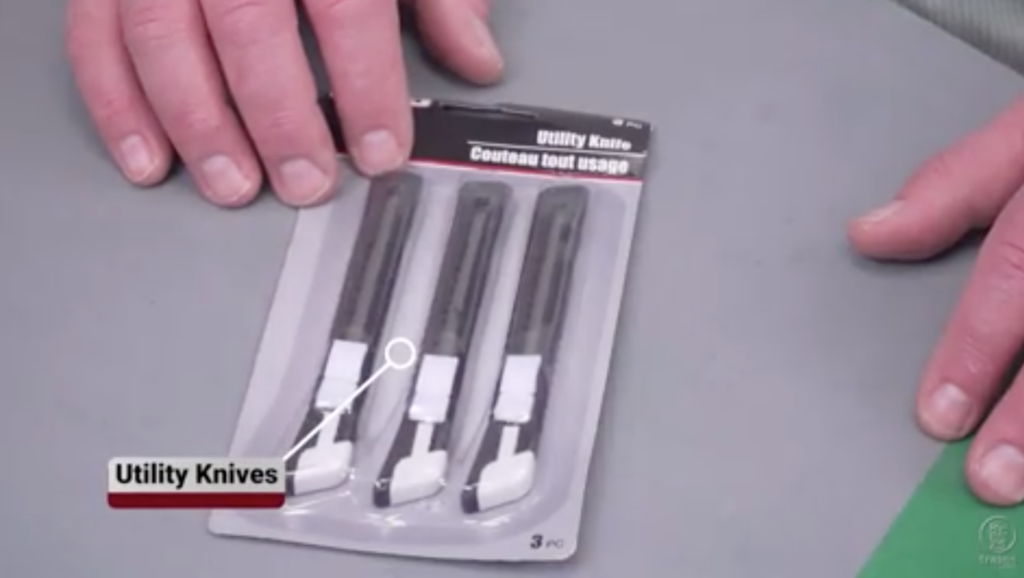

Classic Toy Trains Editor Hal Miller prowls the dollar store aisles in search of inexpensive items that are useful on the workbench or layout. […]
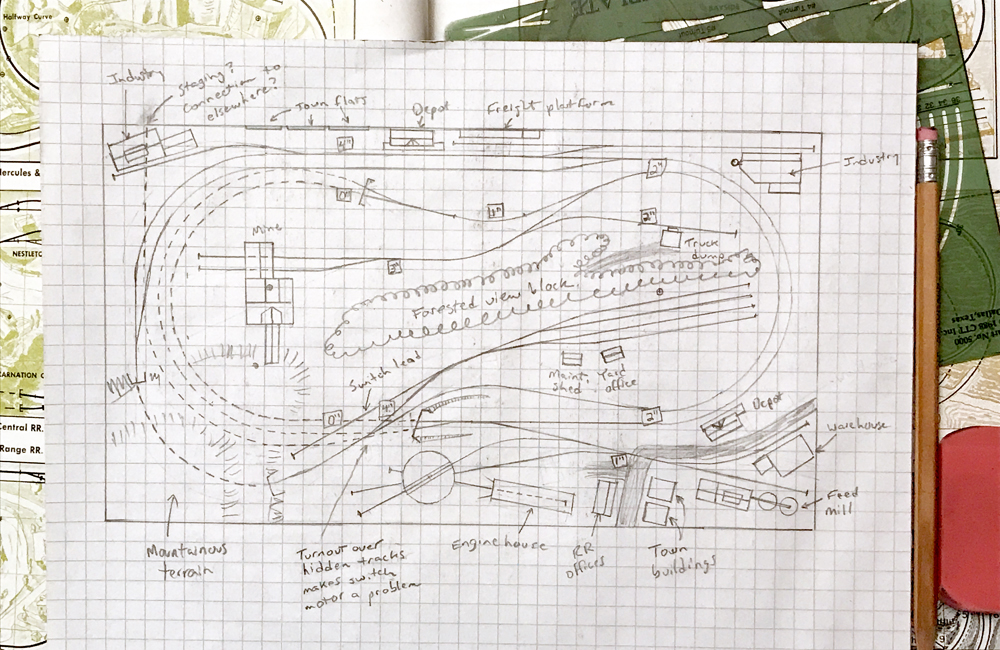
Sketching with Steve The good old 4 x 8 train table is a tradition – if not a cliché – for a reason: plywood comes in 4 x 8-foot sheets. When our dads or grandpas bought us our first train sets for Christmas, they often nailed that simple oval or figure-8 onto a table made […]
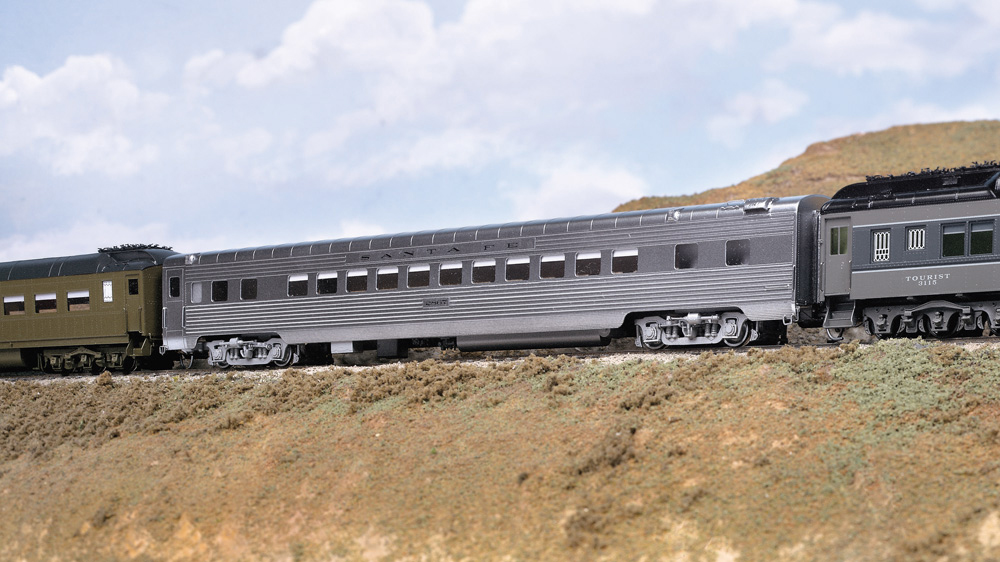
The stainless steel finish for passenger cars made of plastic is typically silver paint that lacks the mirror sheen of real stainless. Even the plated finishes of the brass models don’t have a realistic stainless look, and plated cars from different makers don’t match. I hadn’t found a finish I really liked, though, until I […]
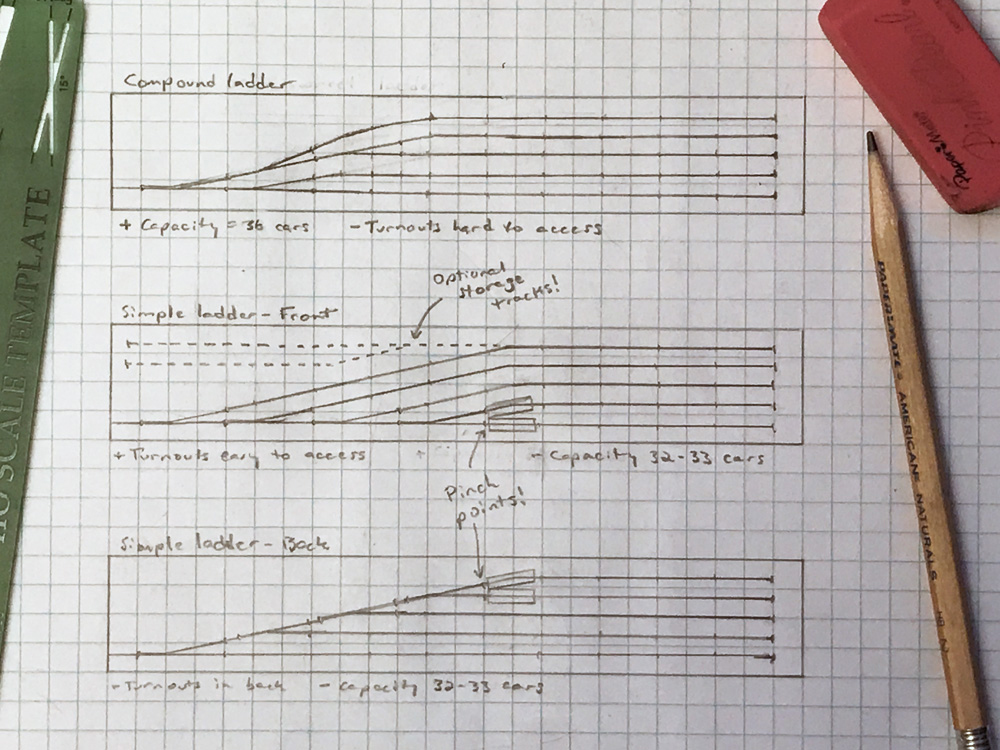
Sketching with Steve How you arrange the turnouts in your yards may be dictated by the prototype yard you might be modeling and at least in part by the shape of the benchwork at that location. But if you’re designing a yard that isn’t constrained by those factors – say, a staging yard on a […]
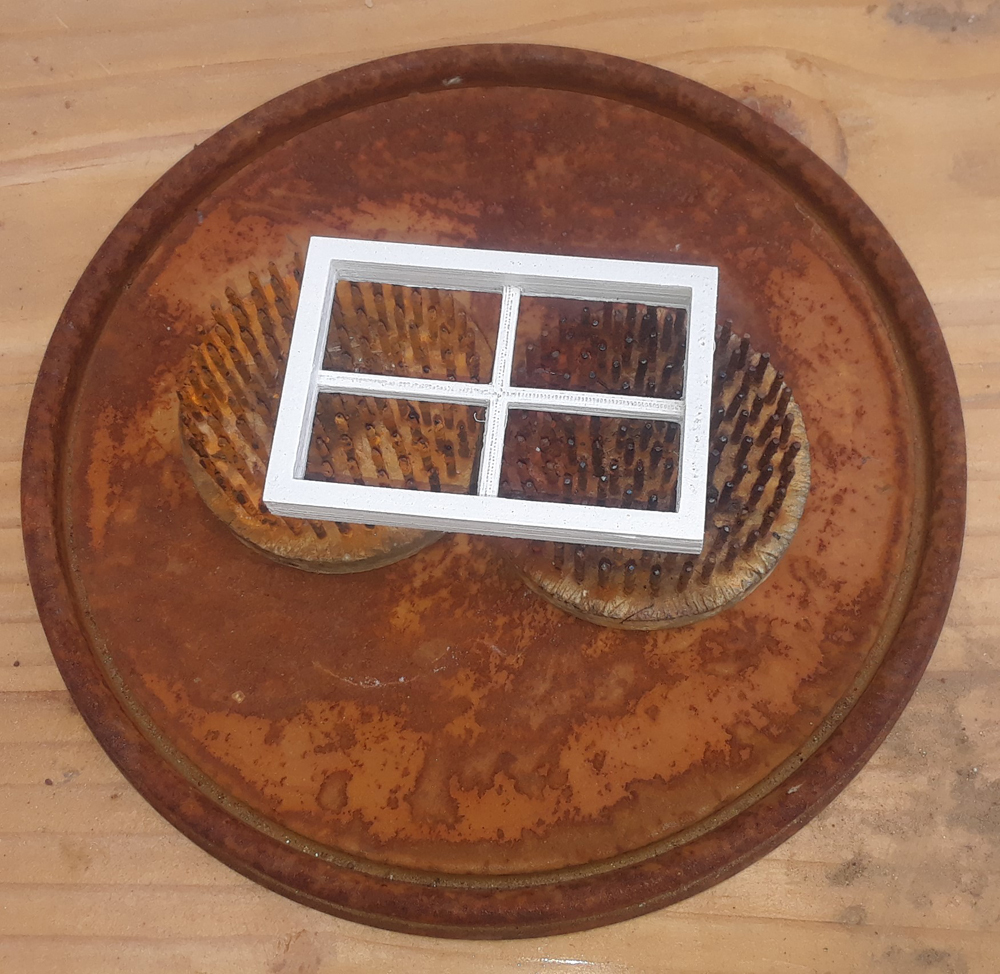
One of the issues that comes up in almost every 3D print is the finished product. Like most plastic models, there can be plastic strings, places that did not get enough material, holes, sharp edges, and the like. I am constantly reading about different techniques of finishing 3D parts. Some of them work quite well, […]
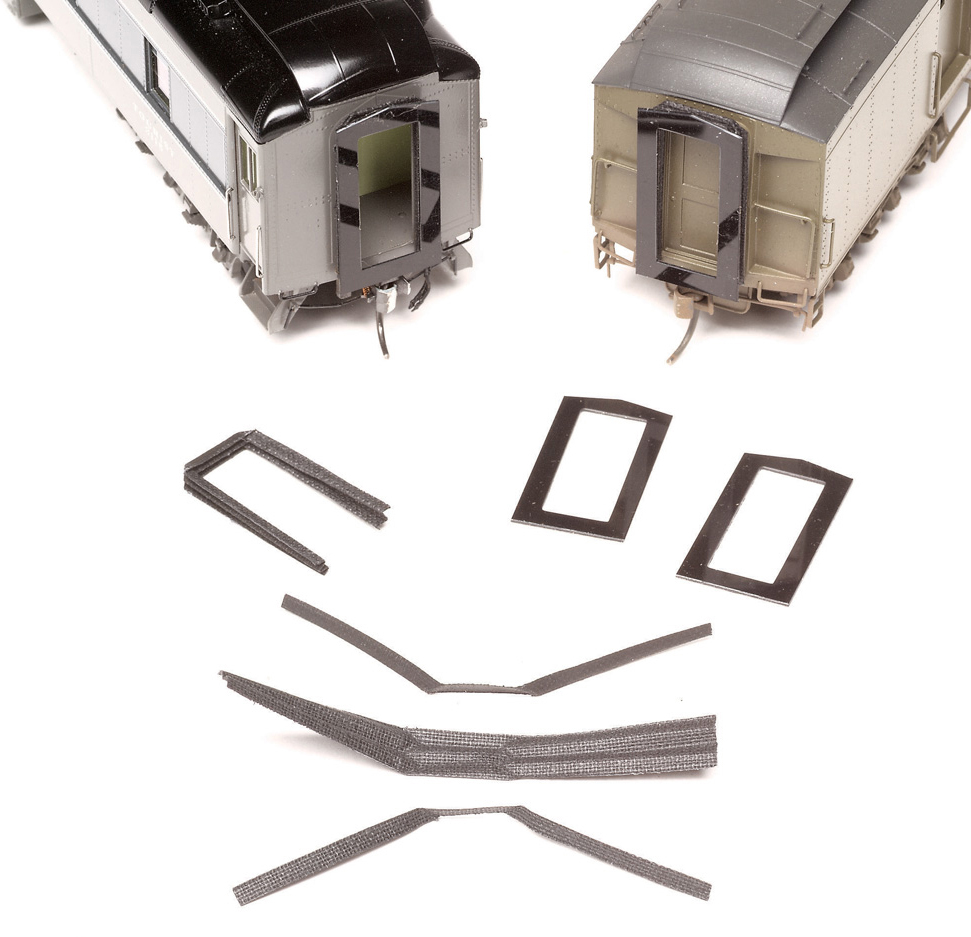
Diaphragms are bellows-like connections that enclose the space between cars for safe passage through the train. Passenger cars look naked without them, but they can be a pain in the neck if they don’t let cars negotiate all kinds of trackwork, or if they keep cars from coupling and uncoupling. I took my cue from […]
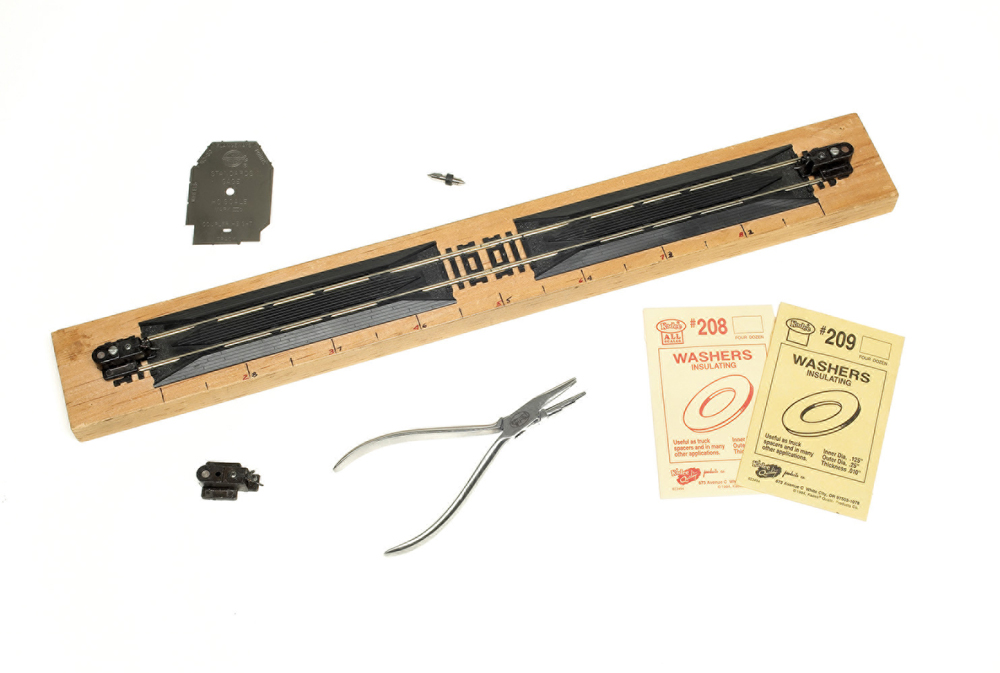
Good rolling stock plays a major role in the operating quality of any layout. On most model railroads, the car fleet represents more potential problems than any other single element, so here’s how I check every car before it goes on my Ohio Southern Railroad, using just a few handy tools, 1. Trucks and wheels […]
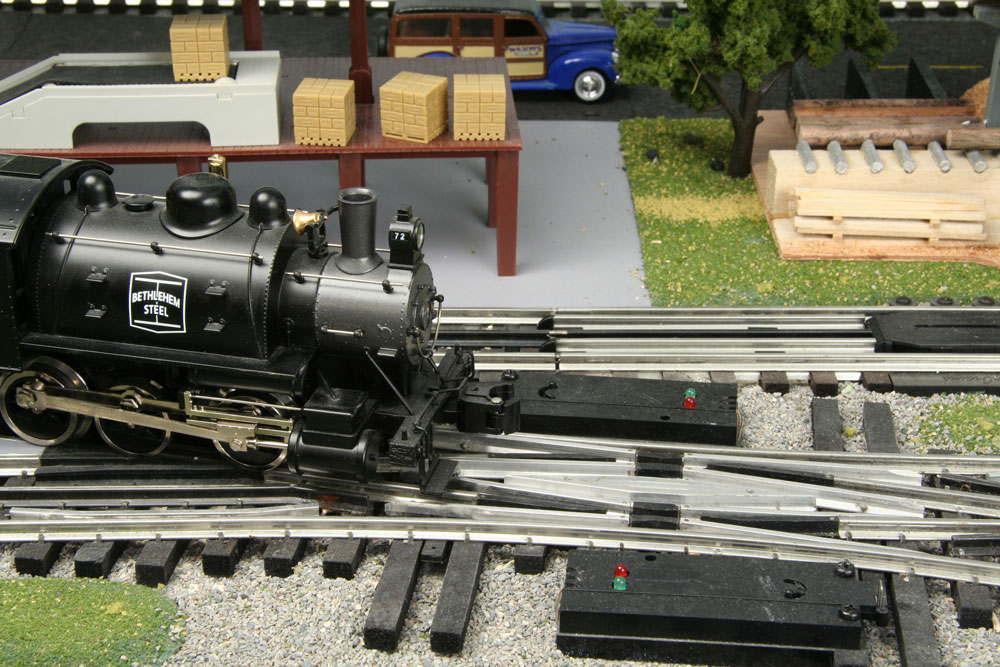
Some of today’s short-wheelbase locomotives have issues with the prototypical switches and narrow-angle crossings that make an O gauge railroad look realistic. Here’s a quick fix that will allow any locomotive - even this economical Bethlehem Steel saddle tanker from Lionel – to perform reliably over the troublesome trackwork. THIS IS A PHOTO FEATURE. CLICK […]
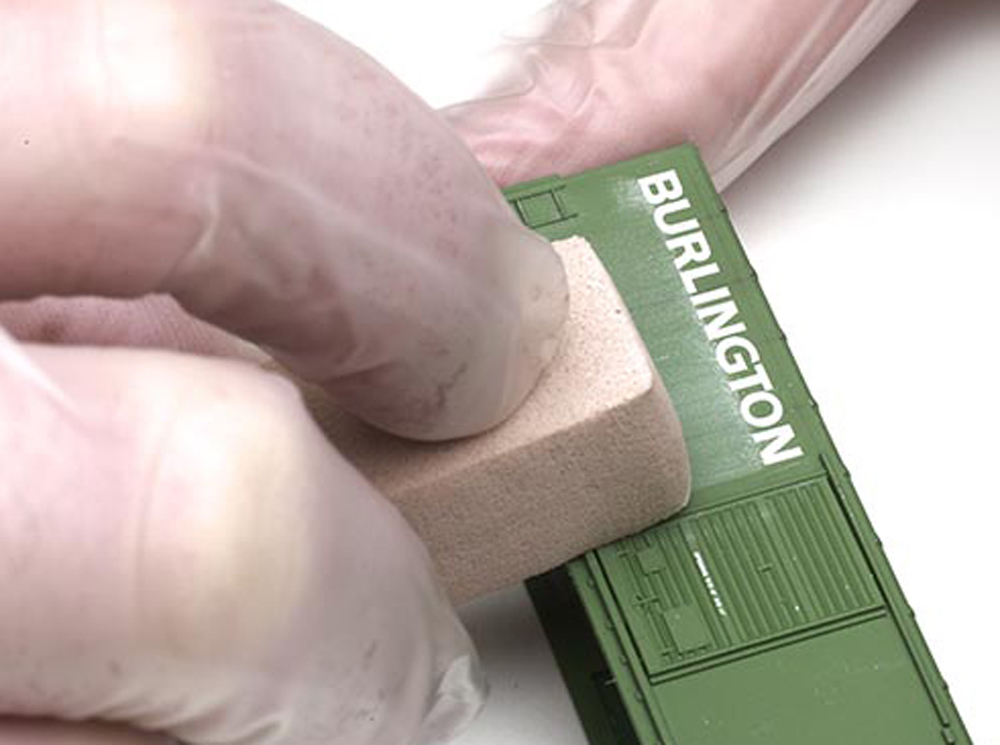
Powdered pastels have long been a popular choice for weathering locomotives, freight cars, and buildings. Several firms offer ready-to-use weathering powders, or you can make your own by scraping pastel sticks with a hobby knife. I started work on this N scale Micro-Trains boxcar by spraying the entire car with Model Master Lusterless Flat. The […]
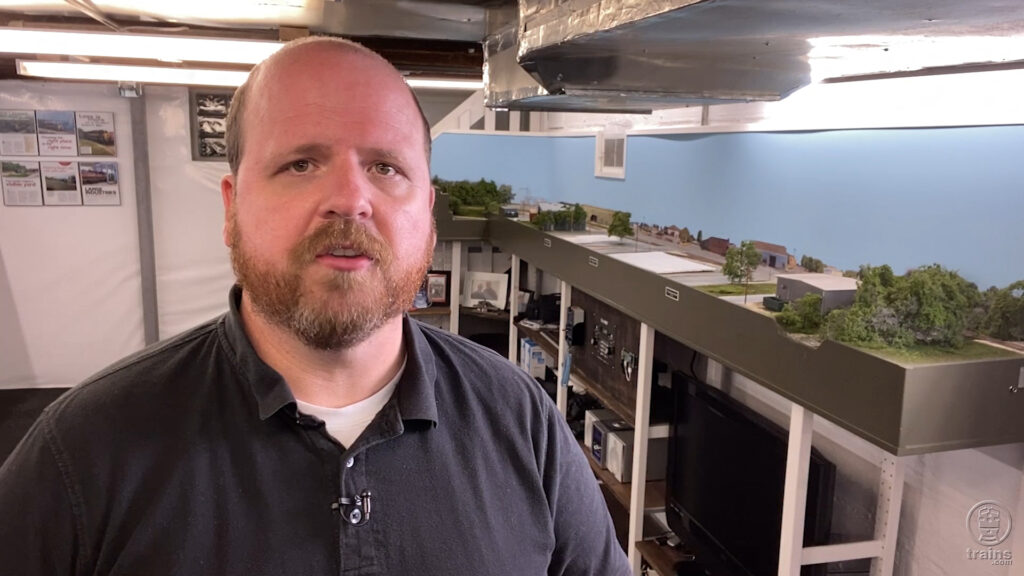
In this season finale, Host James McNab highlights scenery and detailing concepts he introduced in the previous episodes – all in effort to finalize one last scene on his Hills Line HO scale layout. […]
![Applying Woodland Scenics Scenic Cement with pipette.]](https://www.trains.com/wp-content/uploads/2021/03/MRR_Scenic_Cement_with_pipette_04.jpg)
On Model Railroader’s Beer Line project layout, which was set in 1947 Milwaukee, I ballasted the track on the entire layout using a favorite technique. I used a 50:50 blend of Highball Products Light Gray and Dark Gray limestone ballast, which looks similar to ballast used by the Milwaukee Road [Highball Products ballast is no […]
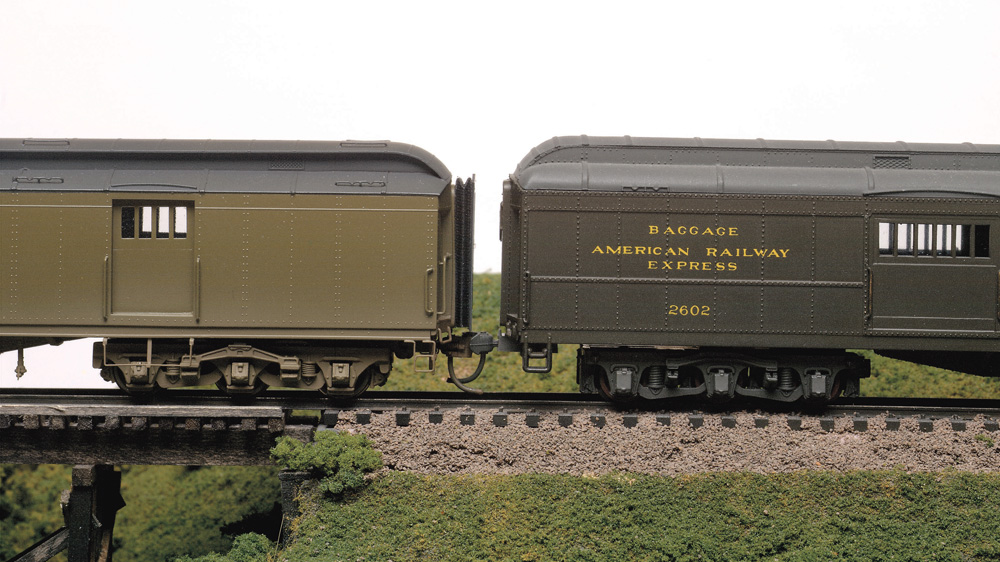
The height of freight cars can vary tremendously, but passenger car heights were very consistent in late steam/early diesel times. Most heavyweight cars, including the Pullman Co.’s standardized sleepers, measured 14 feet from the rails to the top of the roof. It’s important to me to know that Atchison, Topeka & Santa Fe heavyweights were […]